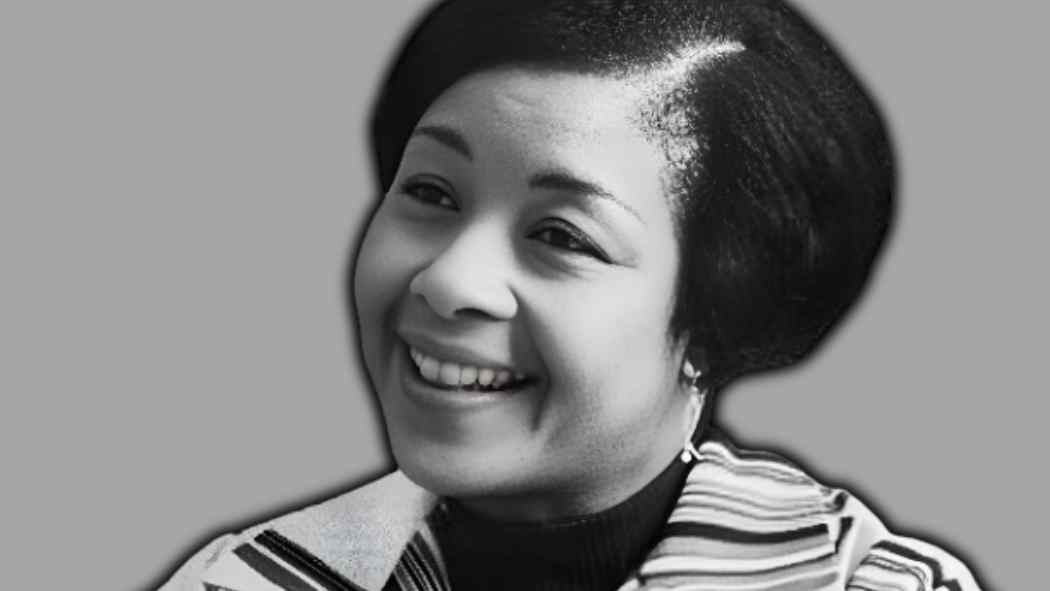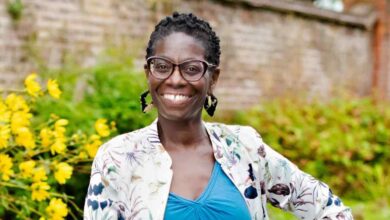Carmen Beckford: The Remarkable Legacy of a Caribbean Pioneer Who Transformed Bristol’s Cultural Landscape

Carmen Etheline Marjorie Beckford was born in Jamaica in December 1928, the eldest of seven children. Growing up in a modest Caribbean household, she inherited from her parents a deep sense of discipline, empathy, and service to others. From a young age, Carmen was known for her compassion and commitment to community, traits that later defined her entire life’s work.
In her late teenage years, she made a bold decision that would shape her destiny — to leave her homeland and travel across the Atlantic to Britain. Like many from the Caribbean colonies during the post-war years, Carmen was inspired by the promise of opportunity in the United Kingdom. At around seventeen, she arrived in Britain as part of the early wave of the Windrush generation, young men and women who came to rebuild a nation recovering from the devastations of war.
Life in post-war Britain was far from easy. The Caribbean migrants faced harsh winters, unfamiliar customs, and a society still grappling with racial prejudice. Yet Carmen’s determination was unshakable. She enrolled in nursing school, worked tirelessly to complete her training, and soon qualified as both a nurse and a midwife. Her early career in healthcare would later influence her broader community work, rooted in compassion, patience, and human connection.
A New Chapter in Bristol: Building Bridges Across Cultures
In 1965, Carmen Beckford moved to Bristol, a city with a growing Caribbean population but also significant racial tension. The 1960s were a defining decade in Britain’s race relations history, and Bristol had already witnessed the landmark 1963 Bristol Bus Boycott, a pivotal event that challenged employment discrimination. Into this climate of both hope and hostility stepped Carmen, a woman ready to make a difference.
Recognising the need for cultural understanding and unity, she began to dedicate herself to community development and race relations. Her ability to bring people together through dialogue and creativity soon made her one of the most respected figures in the city’s multicultural movement.
Carmen played a central role in establishing the St Paul’s Festival, which would later evolve into the world-famous St Paul’s Carnival. This event became a powerful platform for celebrating Caribbean culture — its music, dance, food, and vibrant community spirit. For Carmen, the Carnival was not just a festive parade; it was a symbol of inclusion and pride, a joyful assertion that Black British culture belonged at the heart of the city.
The Birth of St Paul’s Carnival
The idea behind the St Paul’s Festival emerged from a desire to foster better understanding between Bristol’s diverse communities. Carmen, alongside other community leaders and activists, envisioned an event that would break down barriers and create unity through art and culture.
She worked tirelessly behind the scenes — organising performers, coordinating volunteers, and encouraging local schools, churches, and community groups to take part. Her leadership ensured that the event was not merely a spectacle but a celebration of shared identity and belonging.
The Carnival quickly grew in popularity, attracting visitors from across the region. It became an annual celebration of Caribbean heritage, drawing together people of all backgrounds. Through music, dance, and food, it promoted cultural dialogue in an atmosphere of joy and respect. Today, St Paul’s Carnival stands as one of the largest and most iconic cultural events in the South West, a living tribute to Carmen Beckford’s vision and perseverance.
Championing Race Equality and Civic Inclusion
Beyond her work in the arts and culture, Carmen Beckford was also a pioneer in race relations. She became one of the first — and possibly the first — Race Relations Officers in the South West of England. In this role, she worked within local government to address racial inequality, mediate between communities, and ensure that Black and minority ethnic voices were heard at civic levels.
Her role demanded great patience, diplomacy, and courage. Britain in the 1970s and 1980s was still dealing with structural racism in housing, employment, and education. Carmen often found herself navigating institutions that were resistant to change. Yet she persisted with grace and determination, believing that fairness and understanding could only be achieved through dialogue and education.
Carmen’s professional influence extended to schools, youth organisations, and local councils. She inspired younger generations to take pride in their heritage and to engage actively in civic life. Many who worked with her recall her kindness, her dignity, and her unwavering sense of justice.
Cultural Empowerment Through Dance and Education
Carmen Beckford also used the arts as a form of empowerment. She founded and led a West Indian dance troupe, which performed throughout the United Kingdom and occasionally abroad. The group, made up mostly of young people, used traditional Caribbean music and movement to express cultural identity and pride.
This initiative was more than entertainment — it was education. Through dance, Carmen helped young performers reconnect with their roots, build confidence, and counter the stereotypes they often faced in British society. She understood that cultural representation was vital for personal dignity and community cohesion.
Her troupe became ambassadors of Caribbean culture, showcasing the beauty of diversity to audiences who might never have experienced it before. In this way, Carmen turned art into activism, creating bridges where there were once barriers.
Recognition and National Honour
Carmen Beckford’s contribution to British society did not go unnoticed. In 1982, she was awarded the Member of the Order of the British Empire (MBE) for her services to community relations. This recognition was a historic milestone — she was one of the first Black individuals in the South West of England to receive such an honour.
For Carmen, the MBE was not merely a personal achievement but a validation of her community’s strength and contribution to the nation. It symbolised the growing recognition that diversity was not a challenge to be managed but an asset to be celebrated.
Personal Character and Values
Those who knew Carmen often describe her as warm, gracious, and unshakeably kind. Despite facing discrimination and numerous social barriers, she never allowed bitterness to cloud her purpose. Her strength lay in her empathy; she believed in listening, understanding, and finding common ground.
Her leadership style was inclusive and nurturing. She led not through authority but through example, showing younger generations how to transform frustration into creativity and prejudice into partnership. Carmen’s humility and optimism made her an enduring role model.
Later Years and Passing
Carmen Beckford continued to be involved in community initiatives well into her later life. She remained a respected elder within Bristol’s Caribbean community and a voice of wisdom for those working in cultural and social sectors. Even after retiring from formal positions, she attended events, mentored young leaders, and remained deeply connected to the city she helped shape.
She passed away in Bristol in May 2016, at the age of 87. Her death was widely mourned, not only by the Caribbean community but by the entire city of Bristol. Tributes poured in from civic leaders, community organisations, and ordinary citizens whose lives she had touched.
Her grave at Arnos Vale Cemetery has since become a place of quiet reflection, visited by those who continue to draw inspiration from her life’s example.
Lasting Legacy and Continued Influence
Carmen Beckford’s impact endures long after her passing. She is remembered as one of the “Seven Saints of St Paul’s” — a group of pioneers who laid the foundations for racial equality and cultural celebration in Bristol. Murals depicting her image stand as public tributes to her lasting influence, ensuring that future generations remember the woman who helped change the city’s identity.
The St Paul’s Carnival remains one of her most visible legacies, but her influence runs deeper. Every initiative that promotes inclusion, every young person who takes pride in their heritage, and every civic programme that celebrates diversity owes something to Carmen’s pioneering efforts.
Her life reminds us that real progress is not achieved through confrontation alone but through perseverance, empathy, and creative community building. Carmen Beckford turned cultural expression into a force for social good, proving that compassion and courage can reshape an entire city.
Why Carmen Beckford’s Story Still Matters Today
In an era where discussions around race, belonging, and identity continue to evolve, Carmen Beckford’s story offers profound lessons. She demonstrated that representation and inclusion are not abstract ideals but lived realities shaped by individuals willing to act.
Her approach — combining culture, dialogue, and civic responsibility — remains a model for how societies can embrace diversity. She showed that lasting change comes not just from protests or policies but from people who are brave enough to stand for what is right and generous enough to bring others with them.
For younger generations, Carmen Beckford’s life serves as a beacon of inspiration. She proved that even in the face of prejudice, one person’s determination can illuminate an entire community. Her legacy encourages everyone — regardless of background — to take pride in their culture, participate in civic life, and believe in the power of unity.
Conclusion
Carmen Beckford was more than a nurse, organiser, or race relations officer — she was a visionary who transformed Bristol’s cultural and social fabric. Her life’s journey from Jamaica to Britain mirrors the broader story of resilience and contribution made by Caribbean migrants to post-war Britain.
Through her pioneering work in race relations, her leadership in creating the St Paul’s Carnival, and her unwavering commitment to equality, she left behind a legacy that continues to enrich the nation. Carmen Beckford remains an enduring example of how compassion, culture, and courage can create lasting change in society.



